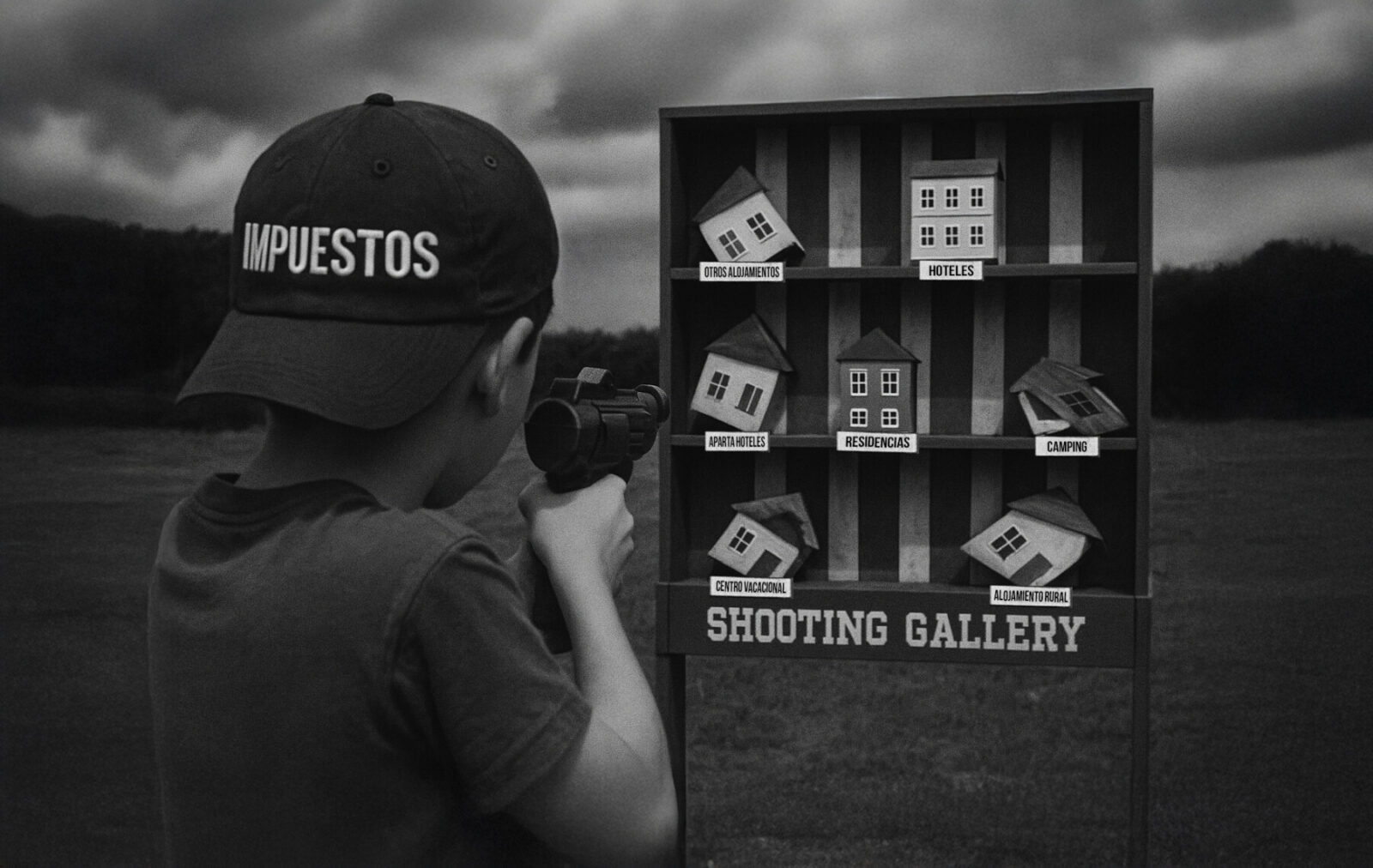
Decree 0572 of 2025: The scare that was not for hotels, but for other accommodations.
Yesterday I had a hard time sleeping. At nine o'clock at night I saw how an important part of my contacts started to send me news and articles about a decree issued out of the blue and without context. The Government, in an effort to protect itself, had changed the rules of the game that put many industries in check. One of them, we believed, was the hotel industry. For a few hours, we thought that hotels would be taxed with a 3.5% self-withholding on gross income. If confirmed, it would have been a direct hit to new projects, stabilizing operations and even consolidated structures.
But this was not the case. Upon reviewing the annexes, we confirmed that the rate for ISIC code 5511 -which corresponds to hotels- remains at 1.1%. It is the same as before. There was no change for us. But the scare was real. And the alert was necessary.

The decree: what it did change (and for whom)
Decree 0572 of May 28, 2025 amended Article 1.2.6.8 of Decree 1625 of 2016 and established new self-withholding rates differentiated by economic activity. Some sectors went from 0.4% to 4.5%. Others, such as retail trade, remained with intermediate charges. Everything is calculated on a month-to-month basis, on gross income, with immediate effect as of June 1, 2025.
In this context, the hotel business came close. All it took was a poorly written line, a different interpretation, for a direct hit. That is why the relief should not hide the lesson: the Colombian tax model can be reconfigured without prior notice. And the criterion is not always technical.
The scare was real
During the first hours after the publication of the decree, it was legitimate to think that hotels would remain at 3.5%. Similar lodging sectors, such as apart-hotels or rural lodging, were also at 3.5%. And in a country where technical details arrive late, fear ran faster than clarifications.
At Blackroom we received inquiries, reviewed attachments, talked to accountants, and for a moment thought about restructuring flows and reports. The impact would have been high: self-delivering 3.5% of revenue on new or stabilizing hotels would have drained the monthly cash critically. But in the end, we were not touched. Not this time.
What would have happened if it had?
It is not an exaggeration to say that 3.5% would have jeopardized several financial models. Most hotels that are being delivered or are in their first year operate with thin margins, high upfront investment and a constant need for cash to stabilize. Self-retention at that rate would have meant taxing without profit, financing the State with operating cash, and then begging for a refund.
What did we learn?
First, that the Colombian tax system can change overnight. Second, that although this time we came out unscathed, the principle of anticipated collection is still in force. And third, that the hotel industry needs to monitor every decree, every resolution and every technical annex as closely as it monitors key financial indicators.
Closing
Decree 0572 did not change our selfwithholding rate. But it made it clear that it could have. We were saved, yes, but it was a close call.
From Blackroom, we understand the magnitude of the scare. And also the need to be prepared. We will remain vigilant, reinforce our models and protect the interests of those who trust us. This decree did not alter our conditions, but it did remind us how fragile they can be.
Preserving the assets we operate and generating the best possible returns will continue to be our priority.
Alejandro Gonzalez
Founder of Blackroom
Alejandro Gonzalez Uribe
Co-founder of BLACKROOM and MACCA. I'm obsessed with turning good ideas into profitable hotels—built from the user's desire and the investor's logic
Recent Posts
Related Articles
Hotel oversupply in Medellín. More tourists does not mean more reservations.
Let's make one thing clear: Medellín is not empty. Nor did it cease to be...
3,000 new hotel rooms are coming to Medellín. Too much supply?
Tourism growth is not enough when supply grows unchecked During...
Rate war: This happens when Medellín becomes flooded with hotels and Airbnbs without any control.
Medellín continues to grow, but the market has changed. Hotels...
Tourism in Colombia: the paradox of a record without help from the national government
While the Ministry of Commerce celebrates record tourism revenues—more than...


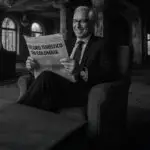


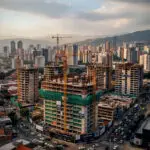


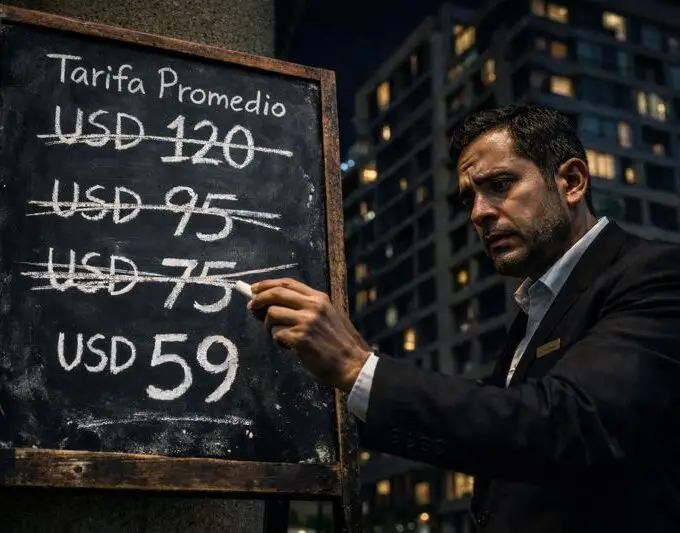
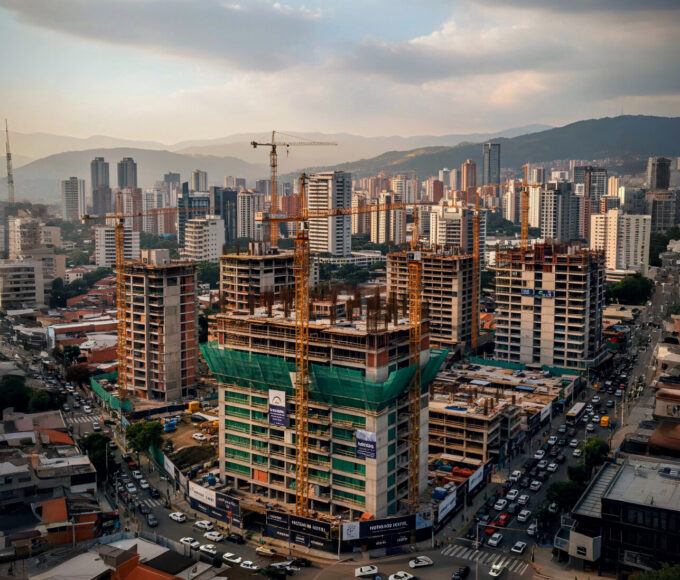

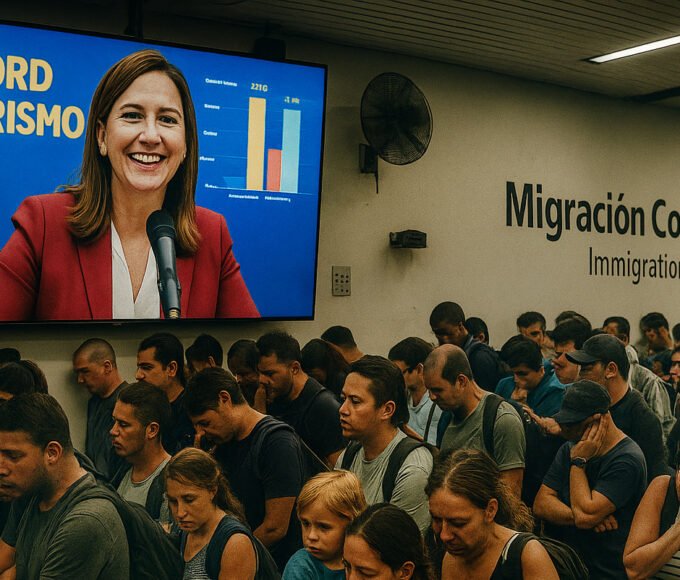
Leave a comment